12 Ways to See the World: A Guide to Every Type of Traveler
17 min readTravel manifests in numerous forms, each offering a unique way to see the world. But travel goes beyond the family summer vacation; travel is a kaleidoscope of purpose, functionality, and adventure.
Whether seeking solitude, cultural immersion, the thrill of new experiences, or just traveling for business, travel caters to diverse intentions and desires. From the serenity of solo journeys to the buzzing excitement of group tours, travel unlocks a spectrum of destinations, each with charm and allure.
Vacationing, considered one of the most conventional reasons for travel, allows folks to take a break from their daily routine and relax in a destination of their choice. In contrast, business travel focuses on professional engagements but often provides opportunities to explore new places within the constraints of a work schedule.
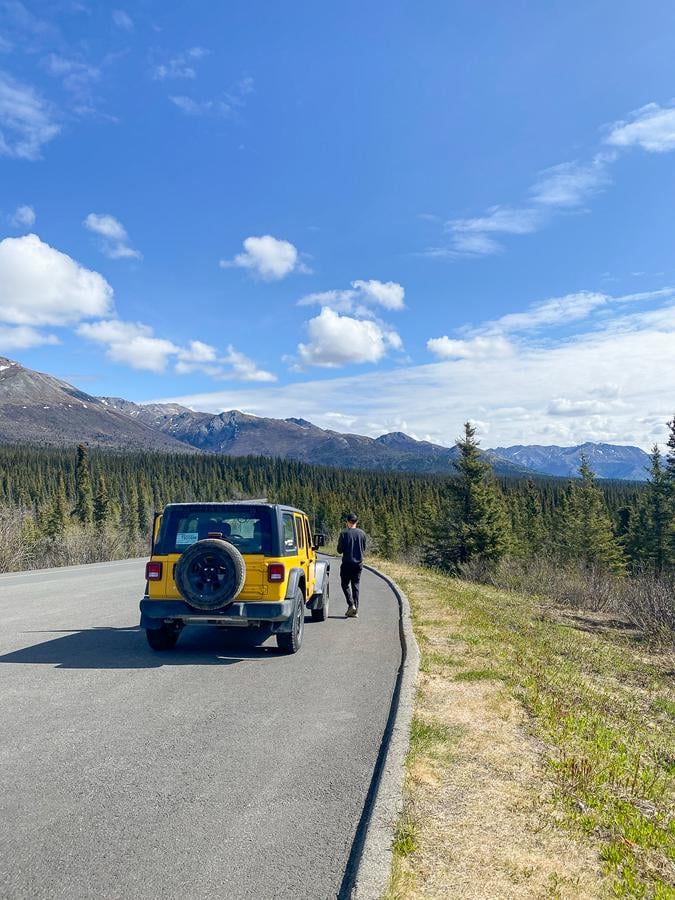

Adventure travel pushes the boundaries further, taking the intrepid traveler to remote and exotic locations for experiences like safaris or mountaineering.
Each type of travel is a doorway to self-discovery, personal growth, and a deeper understanding of our world. Traveling inspires and educates, fostering connections between people and the environment they explore. Read on and see for yourself as we delve into the different types of travel.
What We Cover
1. Leisure Travel
Leisure travel is about taking a break from the grind and doing something fun, relaxing, or both. Whether you seek the serenity of a solo journey or the camaraderie of group travel, vacations cater to diverse desires for adventure, relaxation, cultural understanding, and joyful celebrations in many destinations.
Solo Travel


Solo travel empowers you to immerse yourself in new experiences without worrying about anyone else. It can be kind of scary at first, but it is also pretty liberating and a great way to meet people.
This kind of travel caters to backpackers, digital nomads, and budget travelers. Many solo travelers prefer hostels for their budget-friendly rates, fostering a community among like-minded adventurers.
Family Travel


Family vacations provide an opportunity for relatives to bond and create lasting memories. Popular destinations include theme parks, family-friendly resorts, seaside locations, and destinations rich in activities for all ages, from children to grandparents.
Group Travel


Family travel, by any other name, and group travel create shared experiences and lasting friendships. Ideal for destination weddings or group tour excursions, these trips often require itineraries for meetings or exhibitions.
Romantic Getaways
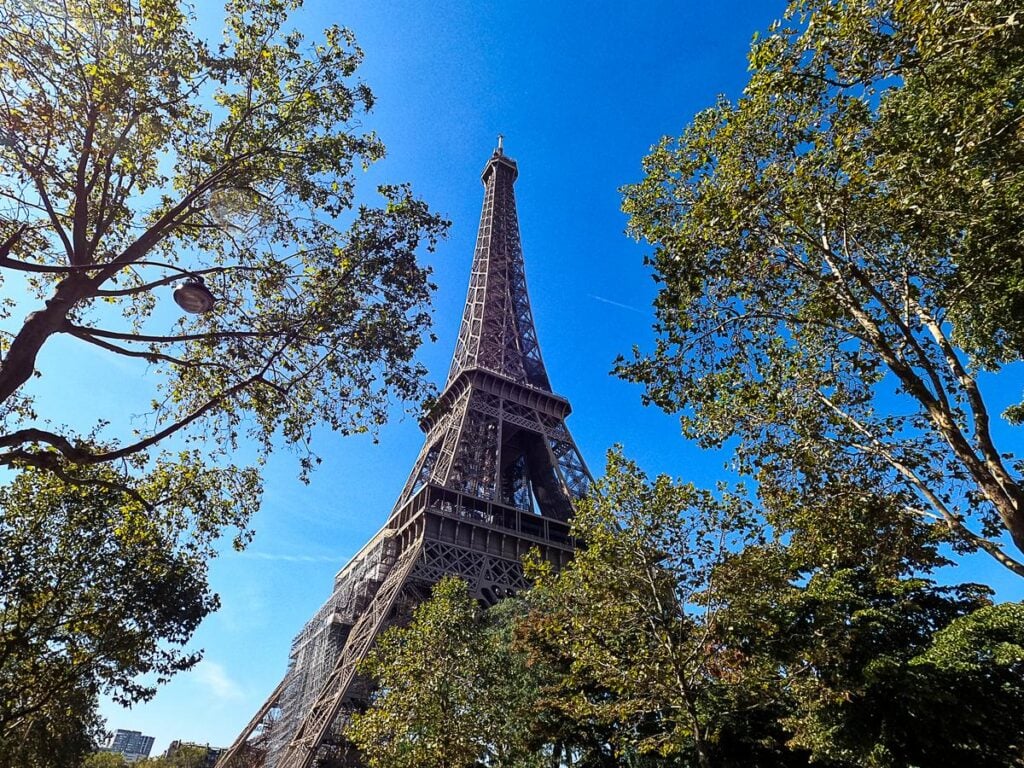

Romantic getaways, such as honeymoons or weekend escapes, focus on couples seeking to savor time together. Destinations boast attractions like secluded beaches and vibrant nightlife, perfect for celebrating new unions or reigniting sparks.
Luxury Travel


Luxury vacations feature high-end, private tours and accommodations from seaside villas to glitzy yachts. Discerning travelers can revel in personalized services and exclusivity, even arriving at their destination via private sailing vessels or jet charter.
Budget Travel
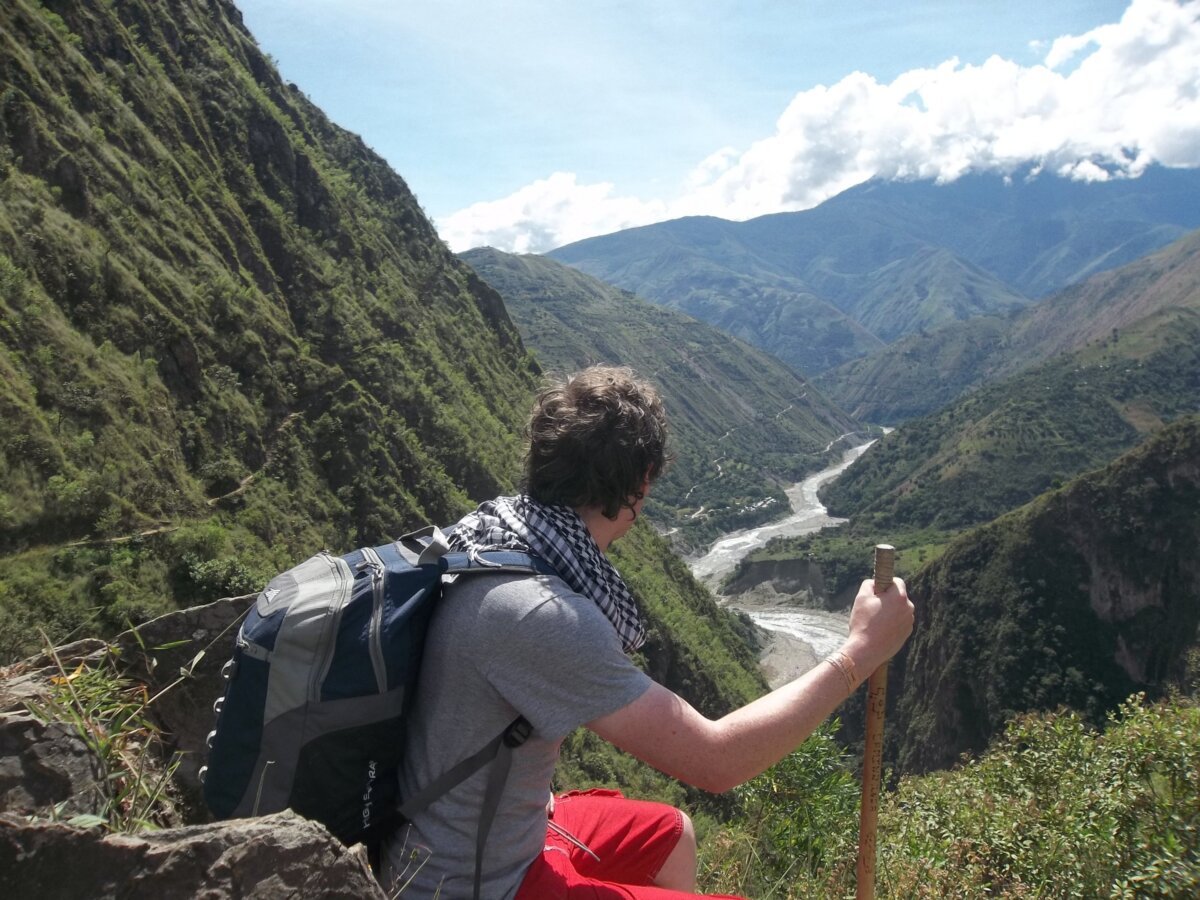

Budget travel prioritizes experiences over extravagance, with backpacking trips and hostels exemplifying cost-efficient adventures. Savvy travelers embrace the thrill of discovering new locales while managing expenditures. This is one of the best ways to discover and learn about a destination.
Wellness Travel


Wellness Travel caters to health-conscious individuals seeking spa treatments, relaxation, and retreats. It’s the perfect escape for rejuvenating body and mind amidst tranquil and inspiring settings.
Cultural Tourism
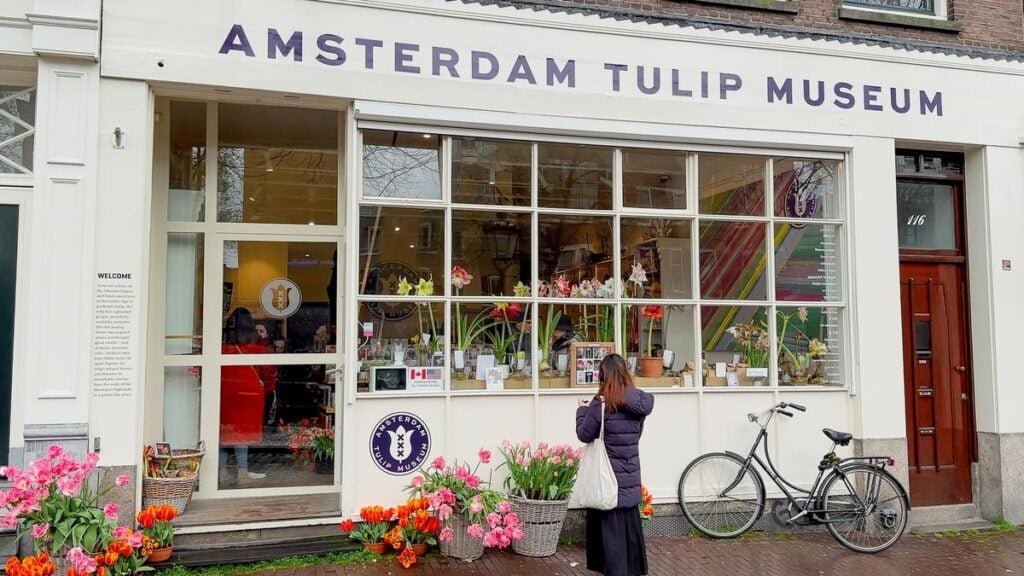

Cultural tourism is for folks interested in learning more about a destination’s history, culture, and local traditions. Museums, historical sites, and participation in cultural workshops make for authentic and educational experiences.
Think pottery making, grape stomping, or pasta making. Speaking of making pasta…
Gastronomy Tourism


Travel doesn’t just broaden the mind but also the palette! Gastronomy tourism allows you to enjoy culinary experiences unique to their destinations. EVERYWHERE has its local treat, and you can learn a lot about a place from what the locals like to munch on. From bustling food markets to fine-dining restaurants, make every meal a voyage of taste!
Sports Tourism


Sports tourism takes fans and participants to the heart of the action, whether trekking, golfing, hiking, or buying tickets to a Timberwolves game. It’s the pursuit of personal challenges, the thrill of competition, and the love of the game.
Festival Tourism


Festival tourism is for those eager to partake in local or internationally renowned festivals. From state fairs and heavy metal music festivals to pokey village fetes, each offers a unique experience worth exploring.
Cruise Travel
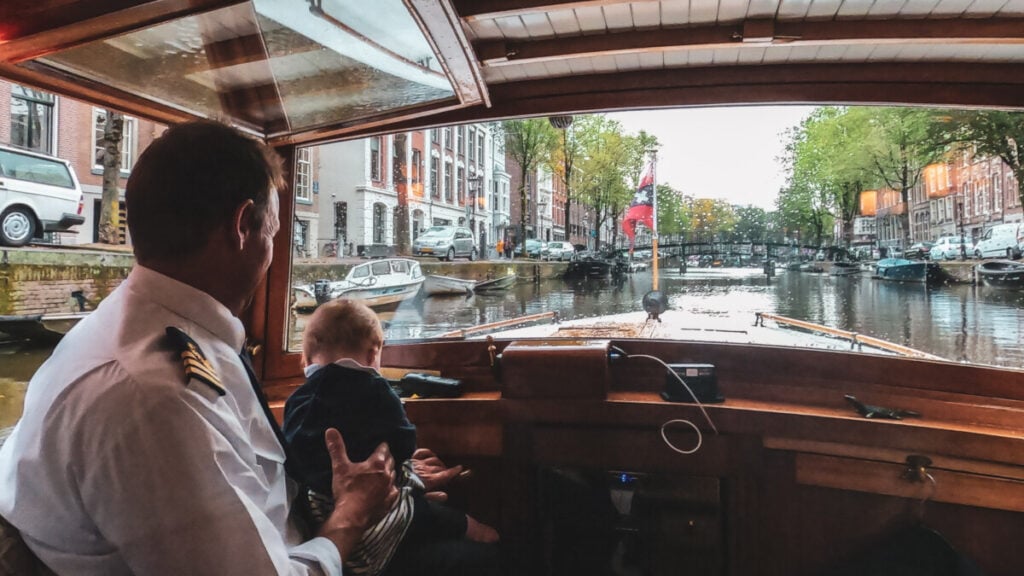

Cruises offer a blend of relaxation and exploration aboard anything from a chartered yacht to veritable floating cities! Cruise enthusiasts enjoy the convenience of striking multiple destinations from the comfort of a cabin. Onboard entertainment, multiple dining options, and amenities like pools, spas, daycare, and shopping malls make cruises a floating vacation paradise.
Staycations


Yep – it’s possible to “travel” around your backyard. And you might discover that your home is the best travel destination! I mean, how well do you know your hometown? Have you seen the view from every hill? Paddled every stream? Gobbled every kebab?
Staycations represent local travel taken to the next level without distant travel. This also includes day trips to nearby points of interest, from areas of outstanding natural beauty to downtown pub crawls. And on the subject of nights out in the city…
City Breaks
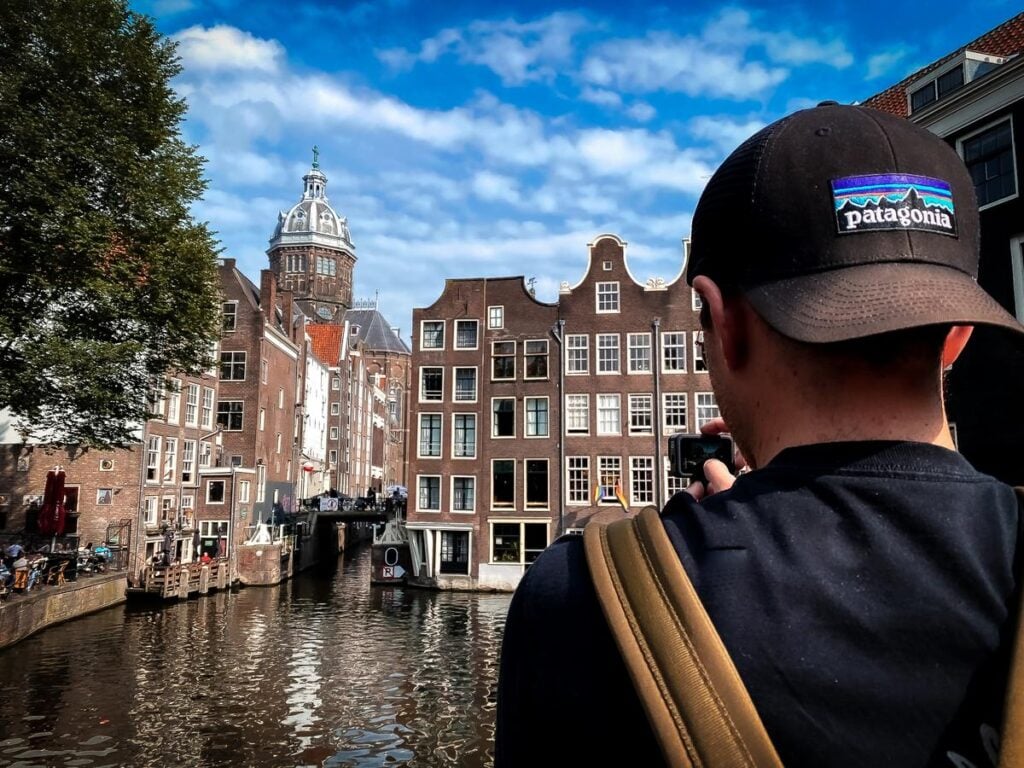

City breaks cater to weekend travelers looking to lose themself in the urban jungle. A city’s pulse is felt through its nightlife, shopping venues, and dining experiences, delivering a compact yet potent adventure. They also tend to be hubs of art, culture, and history, with plenty of museums and galleries to wander.
Rural Tourism
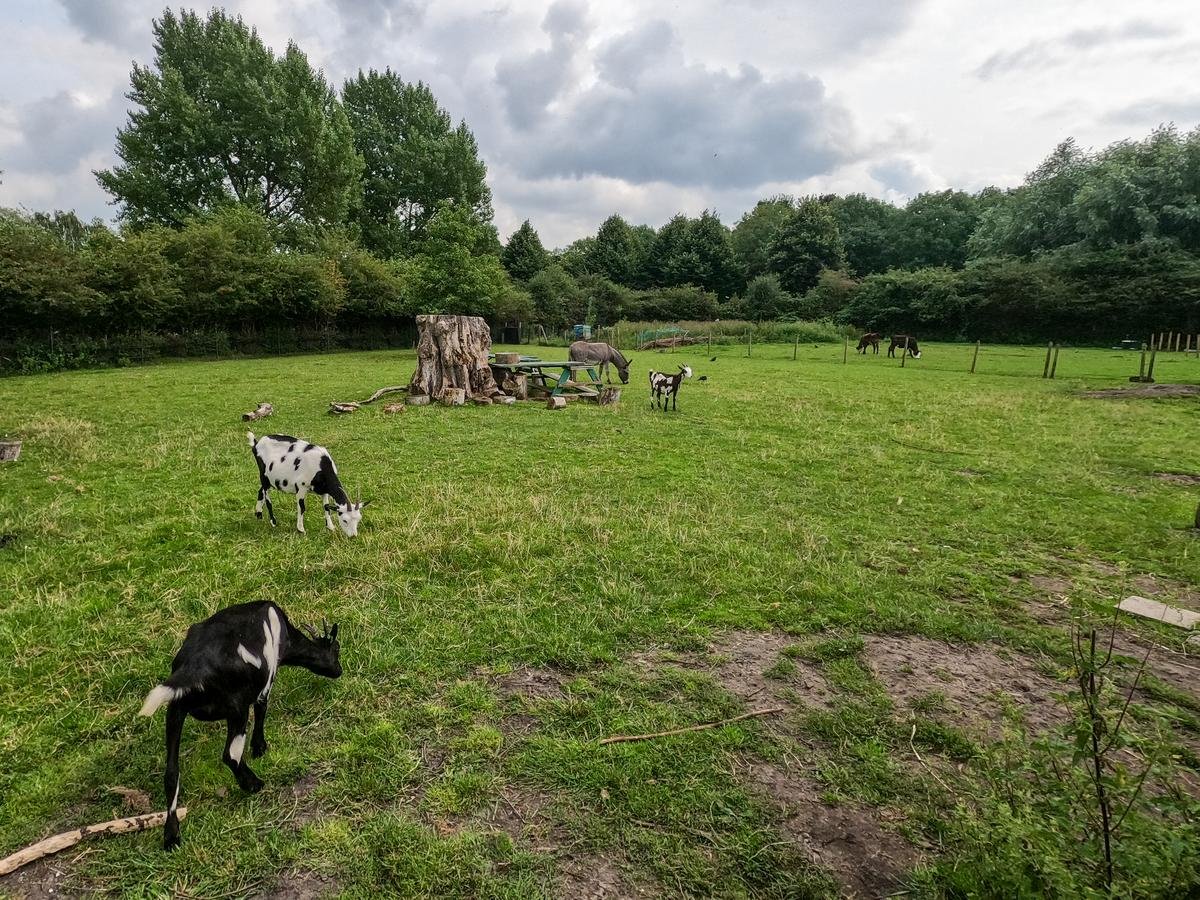

Maybe you need a break from that pulsing city! Rural tourism invites nature enthusiasts to explore eco-tourism and the simplicity of country life. Farms and quaint villages provide a tranquil setting, far from the bustle of urban environments.
They also tend to be great places to source some amazing food. Rural tourism is another big hit with hikers, backpackers, and camping enthusiasts. Speaking of which…
2. The Great Outdoors
Exploring the great outdoors is a premium for most vacationers. I’ve always thought that if you want to understand what any country is like, you can find its heart in the towns, but its soul is in the countryside.
Walking and Cycling
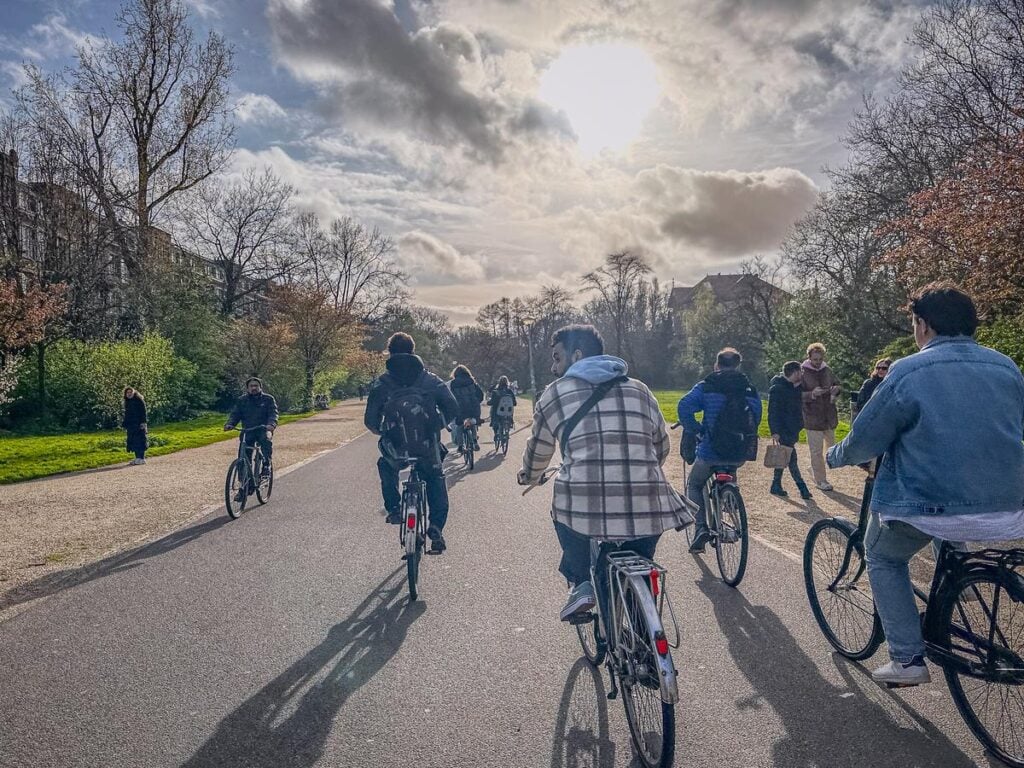

Walking vacations are why I got started with ViaTravelers! Exploring towns and villages at street level is the only way to get a feel for a place, with walking or bike tours.
The same can be said for getting out of the city, too! Forest walks, hill hikes, and rural bicycle tours are magnificent ways to take in the countryside.
River and Canal Cruises
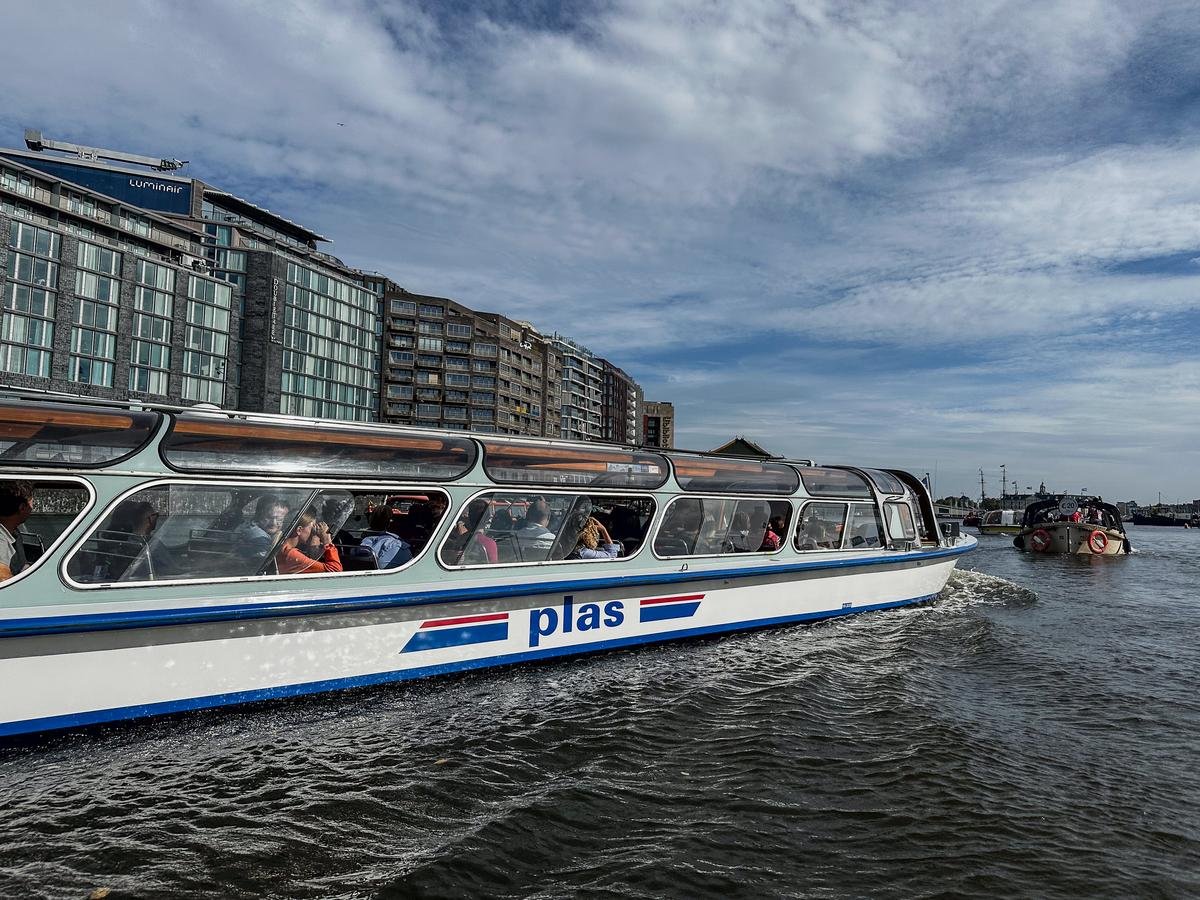

For centuries, mankind has used rivers, streams, and canals as natural highways to cross the country. Today, this is a delightful way to explore a destination.
These cruises come in all shapes and sizes depending on where you are in the world. A canal cruise in Venice differs from Amsterdam, Dubai, or the Grand Union Canal in the U.K. The same can be said of a multi-day cruise along the Rhine versus taking a traditional paddle steamer along the Mississippi. It’s whatever floats your boat!
Road Trips and RVs


While exploring a place on foot or behind handlebars is nice, some places are too big. Biking across the U.S. isn’t for the faint of heart! Road trips can get you from destination to destination and take in big chunks of the great outdoors while you’re at it.
You might also consider buying or renting a caravan or RV. This gives you way more flexibility with where you want to stay, opening yourself up to places like RV and campsites in the heart of nature. This brings us nicely to…
Camping
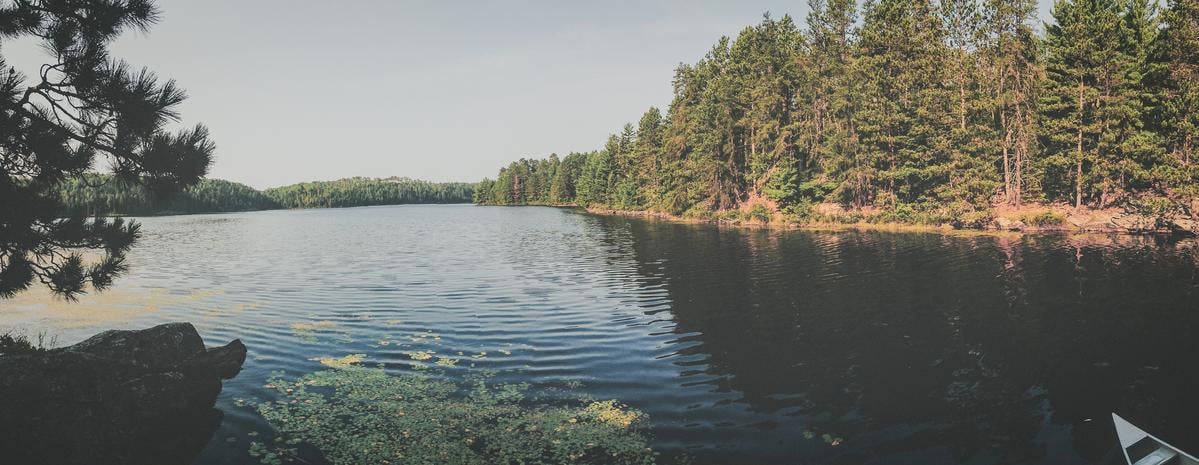

Sleeping under canvas and cooking your food over an open fire is one of the best ways to connect with nature and recenter yourself. In my honest opinion, camping is an essential experience for any traveler. Still, I grant you that completely cutting yourself off from the modern world can be a bit extreme for some. In which case…
Glamorous Camping
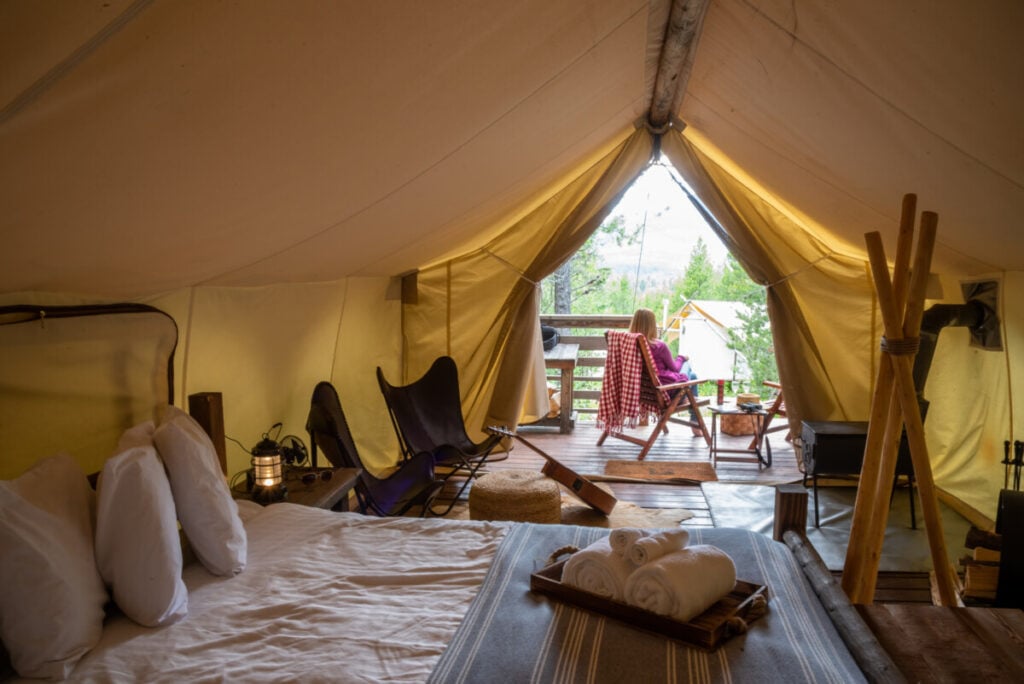

Glamorous Camping, or “glamping,” elevates traditional camping into a more comfortable and luxurious experience, blending the beauty of nature with the comforts of home. Unlike conventional camping, which often involves sleeping bags and tents, glamping provides luxurious accommodations such as furnished safari tents, treehouses, yurts, or cabins.
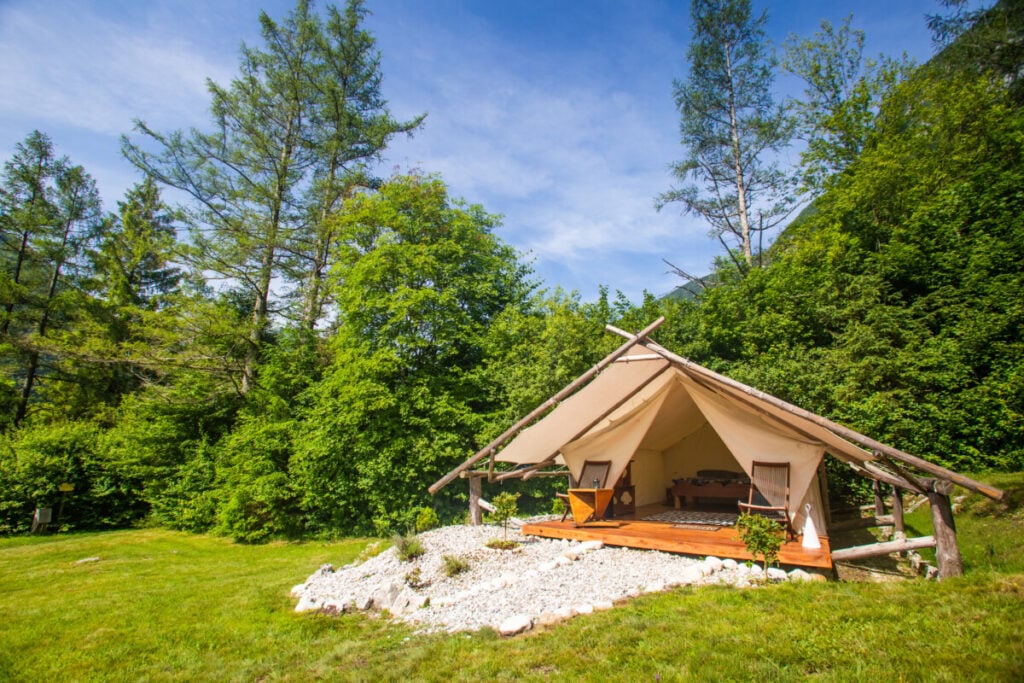

Glamping sites typically feature a range of structures, each with unique amenities. These amenities go beyond the basics, adding elements of luxury travel to the great outdoors. Instead of sleeping bags and pooping in buckets, you can expect comfortable bedding, en-suite bathrooms, and even gourmet dining: Often local and expertly prepared meals.
Despite the luxury, glamping remains rooted in the camping spirit – a deep connection with nature. It provides the ideal setting for those looking to unwind in the tranquility of natural surroundings without preceding the plush comforts of a premium vacation and travel style for the contemporary wanderer.
But “contemporary travel” isn’t all Millenial Gray furniture and lounging by your Wickiup’s personal pool. There’s also a wilder side.
See Related: How to Pack For a Camping Trip [Step-by-Step Checklist]
3. Adventure Travel
Adventure travel is for those seeking to immerse themselves in the outdoors and experience the world through an active lens. It encompasses a variety of experiences suited to all levels of thrill-seekers.
Trekking
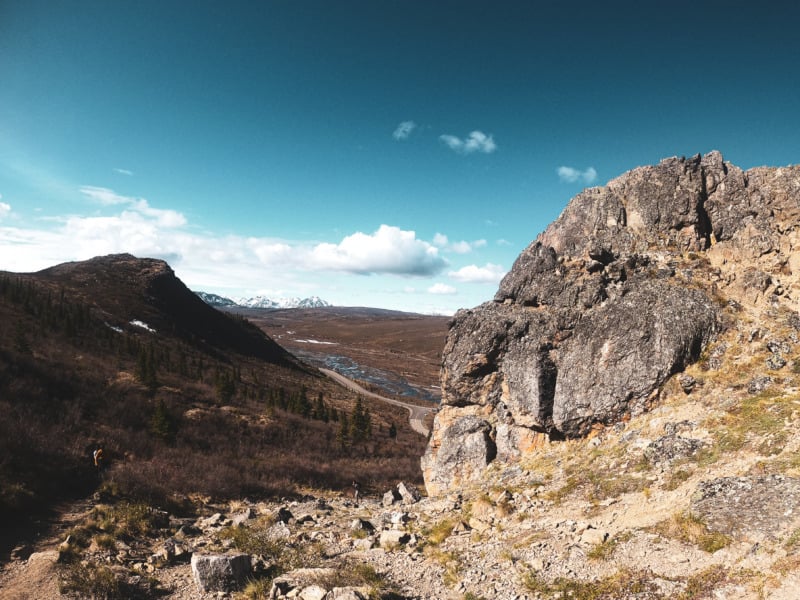

Hiking on hard mode! Climb every hill, ford every stream! Adventurers traverse natural terrains, from gentle trails to challenging mountain paths, connecting with nature up close on all-day treks across the wilderness. Trekking also goes hand in hand with…
Backpacking


Carry your life in a backpack, exploring different regions with a sense of freedom and self-sufficiency you won’t find anywhere else! Except maybe the military, but that’s more of a commitment and warry. And if you are in for a military thrill without getting shot at…
Mountaineering and Rock Climbing


Climbing mountains can be simple; Mount Snowdon in Wales and Mount Fuji in Japan are easy hikes. But there is no comparison to clambering up Everest or K2. Mountaineering and rock climbing require skill, technical expertise, the right gear, and attitude! But they can provide the most incredible views on Earth that few see with their own eyes.
Canoeing and Kayaking
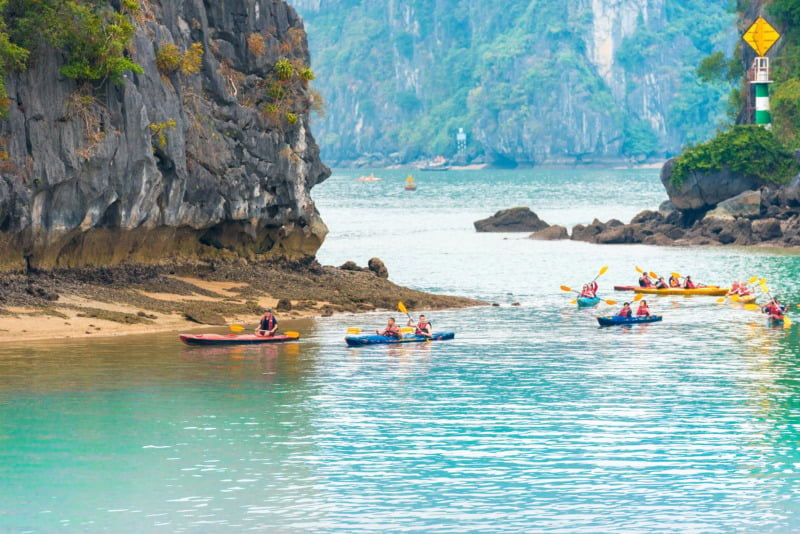

Exploring the wilderness in a little boat is another way to find extraordinary views of paths less traveled. You can also increase the adventure factor by backpacking and camping!
Overlanding


There are some corners of the world so vast and so wild that exploring them on foot wouldn’t just take forever—it’s also downright dangerous! That’s where overlanding comes in.
Roaming around the dirt tracks of Alaska or the windy plains of Mongolia in a 4WD vehicle is a great alternative for those looking to spice up their next road trip.
4. Business Travel
Business travel is an essential component of many industries, facilitating face-to-face interactions that can be pivotal to success. It invariably involves attending meetings and conferences, but it doesn’t need to be all work and no play. You’re in the prime position to find out where the best grub is in town or maybe even tack on a day or two.
Educational Travel


We all have to start somewhere, and often, that requires training. This could be an out-of-state school or even overseas. Educational travel can also combine learning with exploration, offering immersive internships and programs that enhance knowledge and foster new skills in global settings.
Conferences and Meetings


Traveling for meetings is often a bore, but even so, it’s an opportunity to meet new faces and try new things. Conferences, on the other hand, have much more potential to rock.
Conferences are bedrock platforms for education, industry updates, and networking. They typically involve large groups from specific sectors. Anyone in the white-collar world is likely to attend a conference at least once in their careers.
I’ve lost count of the number of conferences I’ve attended over the years, and the destinations have ranged wildly from downtown convention centers to golf resorts in the countryside.
Bleisure Travel


Gaining momentum, “bleisure” travel incorporates leisure time into a business trip, allowing travelers to enjoy destinations once work commitments conclude. Business travelers in the corporate world will find a lot of leisure time and excursions built into their travels by their hosts.
That said, as travel becomes more expensive and exclusive, there is a growing trend of business travelers taking an extra day or two or an extended layover at their business destination. These travel arrangements demand more careful planning to ensure productivity and appease employers.
5. Eco-Tourism
Eco-tourism represents a commitment to responsible tourism, which fosters conservation and sustainability. This travel philosophy is anchored in the principle of minimal impact on the environment and the enrichment of local communities.
Nature Adventures
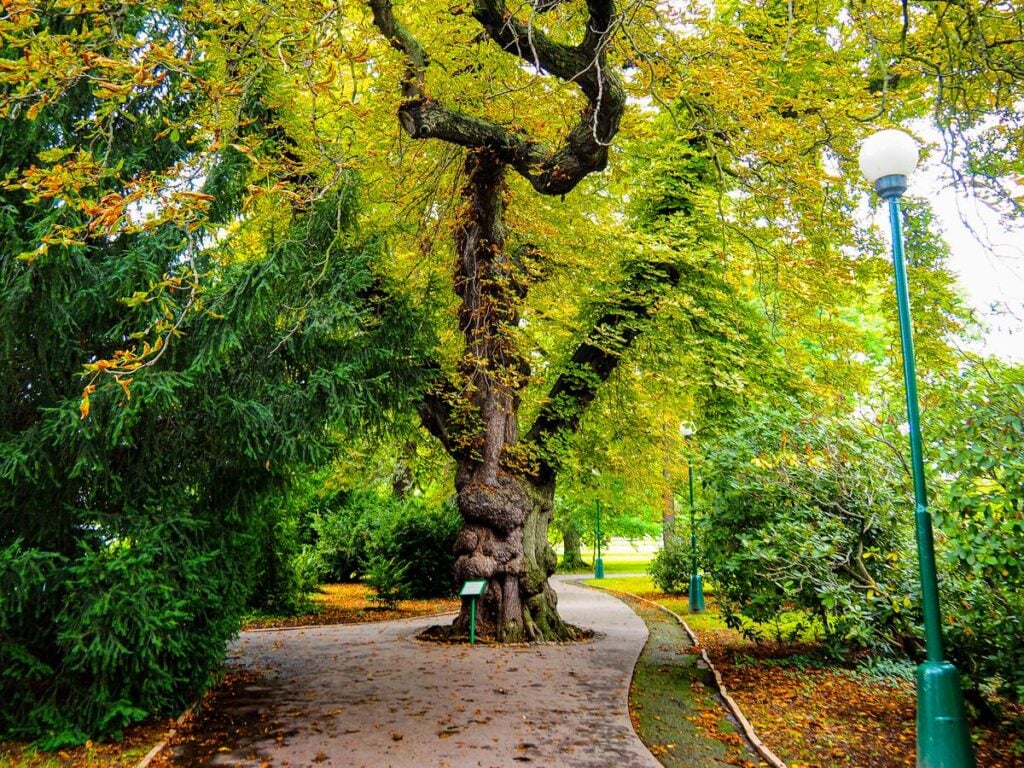

Travelers explore untouched or pristine environments. The focus is on experiencing and learning about the natural world.
Hiking or walking tours that emphasize the appreciation of flora and fauna, with guides ensuring responsible trail use, are common examples. Other examples include horse rides, pony treks, and kayaking with portages.
Sustainable Practices and Eco-Lodging
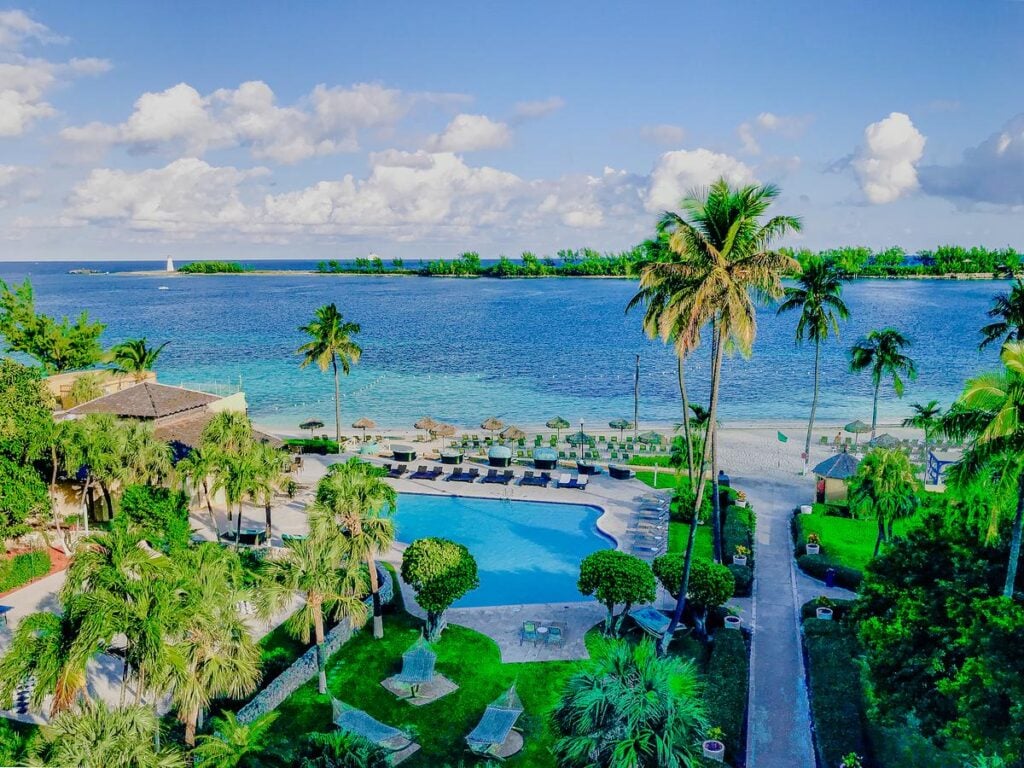

Accommodations and tours prioritize sustainability, from using renewable energy sources to eco-friendly waste management. It is worth considering staying in eco-friendly accommodations designed and operated with environmental sensitivity, such as using local materials and supporting green initiatives. Some accommodation booking sites (like Booking.com) can help narrow down these places.
6. Wildlife Safari Travel
Once the pursuit of wealthy colonialists looking to mount heads on walls, wildlife safari travel is overwhelmingly ESG-oriented. Most safaris operate with animal conservation in mind.
Safaris offer an immersive experience into the heart of nature, where travelers can witness the majesty of conservation. They aim to educate visitors about the importance of wildlife preservation as they explore the untouched wilderness, and some in a few different flavors:
Guided Game Drives
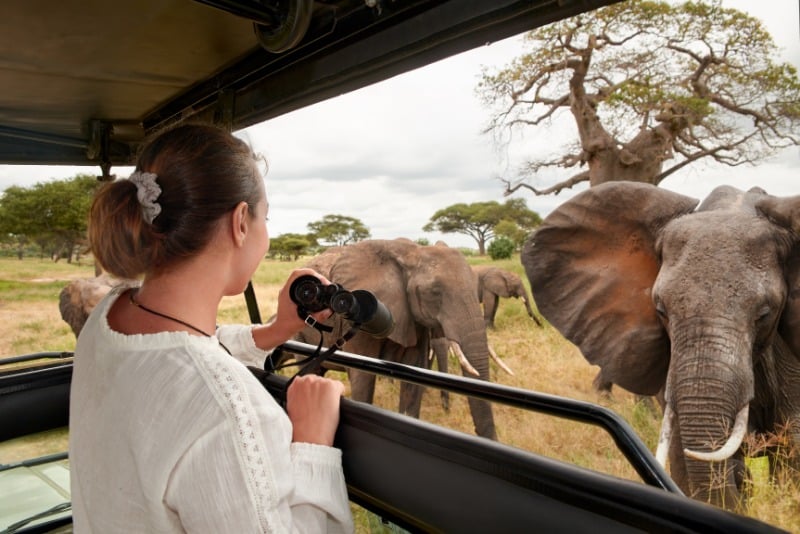

Most African safaris are made up of guided same drives. Travelers explore the savannah in 4×4 vehicles with experienced guides showcasing this incredible continent’s animals, great and small.
Photographic Safaris
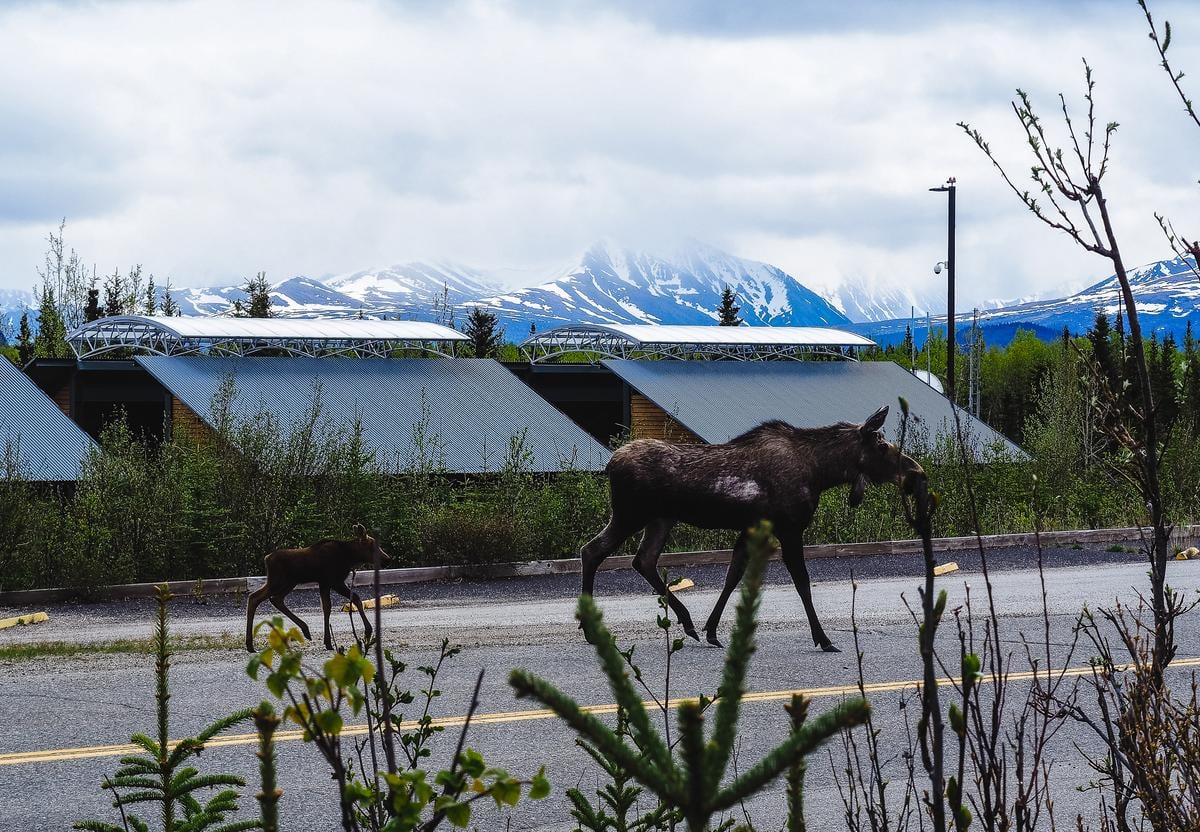

These cater to photography enthusiasts aiming to capture nature’s moments. Many professional traveling photographers cut their teeth on photo safaris.
Cycling Safaris


Adventurous souls can pedal through landscapes, getting closer to the terrain and fauna. Dress for maximum comfort and bring plenty of water and sunscreen. A small first aid kit and puncture repair kit are also recommended.
Luxury Safaris
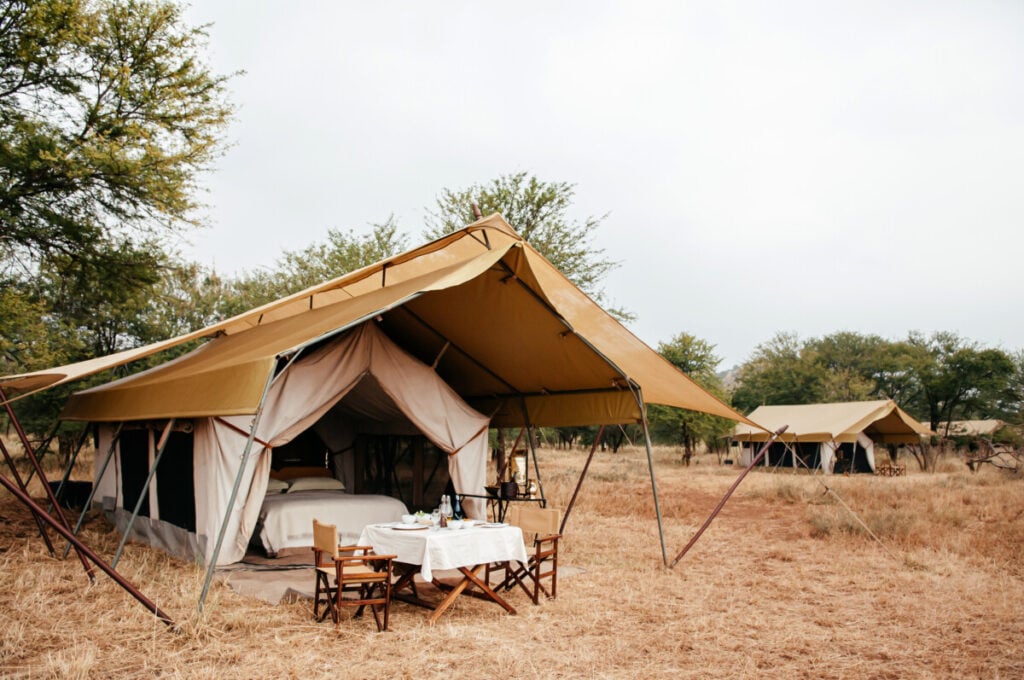

These combine the wilderness experience with high-end accommodation. They often incorporate a closer look at conservation efforts as well as up-close encounters with animals that have been saved and/or are being rehabilitated.
Hideout Safaris
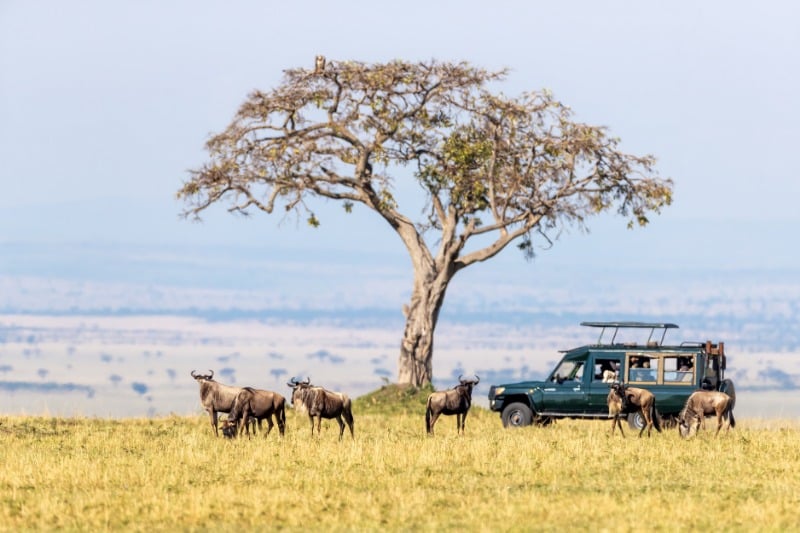

Want to enjoy the memory of a lifetime? These unique experiences allow observing wild animals from concealed spots for a private encounter in their natural habitats.
See Related: Most Beautiful Places in the World to Visit
7. Volunteer Travel
It’s important to remind yourself that travel is a privilege. You might be the type of traveler who gives something back. Volunteer travel is the intersection of tourism and community service. Done right, this type of travel isn’t just about seeing new places; it’s about leaving a positive footprint.
Travelers contribute their time, energy, and skills to support local projects, ranging from environmental conservation to education. This altruistic approach is very popular with younger folks on their gap year. Exploring the world like this allows participants to immerse themselves in a new community and contribute to its welfare, creating enriching experiences.
Teaching Opportunities


Educating and sharing knowledge with people from another culture is extremely rewarding, and I’ve found that this goes both ways. Most of my favorite teachers growing up were from overseas, each with a unique background and take on the U.S.
Likewise, giving talks abroad and mentoring folks who aren’t from the U.S. has exposed me to even more of this. It’s a truly human experience that is both rewarding regarding knowledge and what it does for the soul.
Conservation Efforts


The natural world is constantly under siege from man-made pollution—and let’s be frank, tourism and travel have to shoulder some of that blame. Efforts to mitigate and repair damage are frequently volunteer enterprises, reliant on travelers looking to engage in environmental work.
Community Development


A core part of humanitarian work is supporting local infrastructure and empowering residents to fend for themselves—but they need the foundations to start.
There are tons of volunteer organizations, from the Peace Corps to the Red Cross and smaller private ventures, that provide wells to villages without clean water.
Healthcare Projects


Providing medical support in underserved areas is for anyone who truly wants to help those in need. This can involve traveling out of state to help with the fallout of a natural disaster or flying to almost anywhere around the world.
It’s sad to say that anyone interested in traveling for healthcare projects will currently find themselves a dizzying list of destinations worldwide desperate for medical support and volunteers. This ranges from villages in Africa ravaged by AIDS to warzones like Palestine or Ukraine.
Military Service and Demining


Volunteer travel can raise awareness and foster meaningful social impact, yet it’s crucial to approach it with sensitivity to local needs and respect for the host community. Some folks like to see the world by answering the needs of a nation and paying the ultimate respect—even sacrifice.
Join the military; see the world – a maxim as old as war. With this comes much more risk, and your career (and “travels”) will be what you make of it. But one major perk will be your travels are paid for!


But there’s more. Many nations around the world will allow non-nationals to join their ranks, like the French or Ukranian Foreign Legions. That said, be mindful of potential legal consequences back home.
For those interested in repairing the damage from war but with all the risk of being in a warzone, you can look into a demining project. Landmines and other unexploded ordnance can lie dormant for many years after peace has been declared and can devastate local populations. Demining projects are extremely risky and require qualifications, but can make places safe to live again.
8. Dark Tourism
Dark tourism involves visiting locations associated with death, tragedy, or the macabre. These destinations offer a unique perspective on history and humanity. They often serve as poignant reminders and provide deep reflection opportunities for visitors.
Visiting dark tourism sites often evokes a reflective state, making life’s fragility and the consequences of human actions jarringly apparent. Reflection is key, driving a deeper appreciation for current societal norms and peace.
Dark tourism is not mere morbid curiosity (although, for some, it is); it’s about learning. These sites act as open-air classrooms, where every location teaches about the darker chapters of human history.
You can expect an educational experience that challenges perceptions and broadens knowledge. You might even learn something about yourself.
Historical Sites


Historical sites often form the core of dark tourism – the good news is they’re everywhere and increasingly accessible. From abandoned prisons like Alcatraz to concentration camps like Auschwitz, they tell stories of past events, providing a valuable educational component.
Disaster Sites


Places of horrific disasters have attracted the most extreme dark tourists. Many of these disaster sites are still extremely hazardous and even illegal to stray into.
Among these, the most famous is Chernobyl in Ukraine. The site is still highly radioactive to this day.
Ghost Towns


While Chernobyl isn’t exactly the safest place to scratch your dark tourism itch, there are ghost towns all over the world you can explore. Middle America and the Deep South are filled with abandoned cities, some as young as 20 years old. From corporate greed to natural disasters, the stories behind some of them would make you weep.
9. War Tourism
War Tourism involves traveling to regions known for their military history and legacy. It can involve visiting historical battlefields or exploring memorials and museums that capture the essence of past conflicts.
The allure of war tourism lies in its ability to bring pages of history books to life. It allows tourists to stand where soldiers once stood and reflect on the sacrifices made during tumultuous times. It’s a respectful approach to understanding military history, fostering a connection to the past that can be sobering and enlightening.
Historical Battlefields
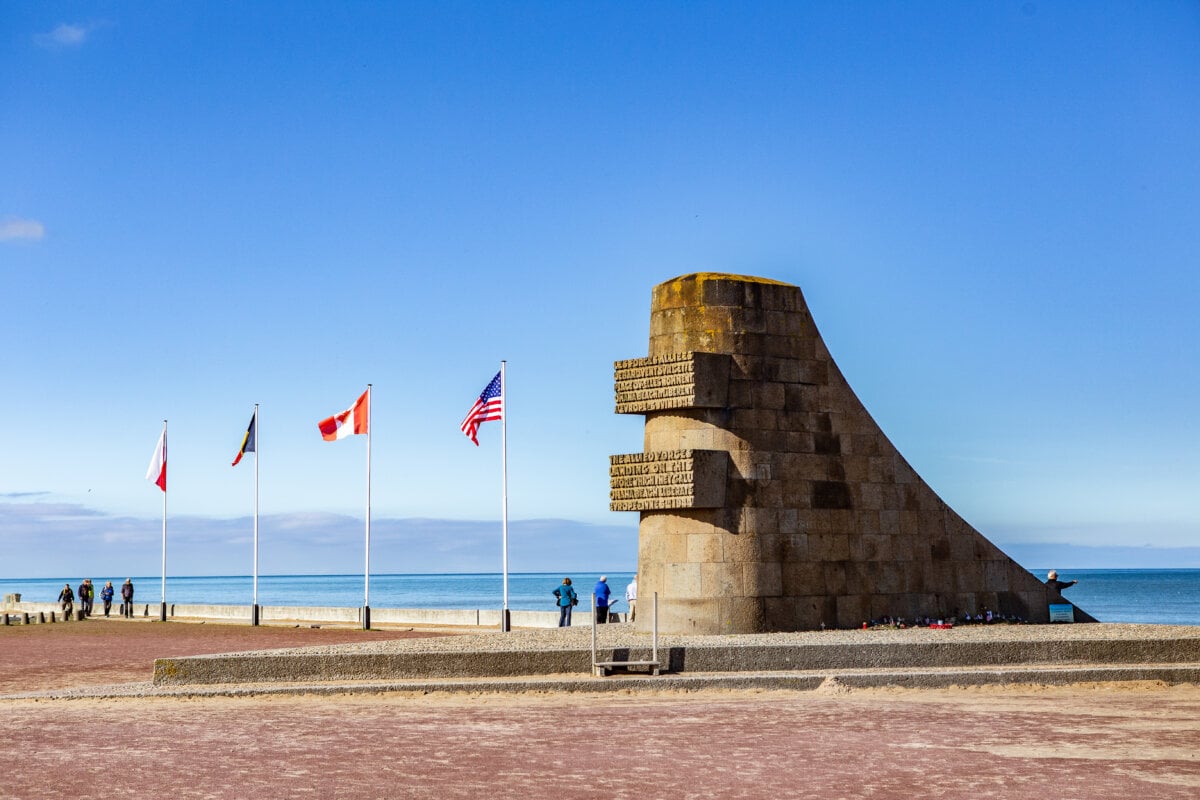

Sites where historical military conflicts occurred. They offer an educational window into strategic battlegrounds that shaped history. Popular examples include the Normandy Beaches, and World War I battlefields in Europe and Gettysburg in the USA. Most of these battlefields will also be close to one or more…
War Memorials and Cemeteries


Structures or sites commemorating war heroes, fallen soldiers, or significant wartime events are common worldwide. These range from the Normandy American Cemetery in France to Nelson’s Column in London.
Military Museums


Military museums play a crucial role in war tourism. They display artifacts that tell the human stories behind war. Exhibits often include personal letters, military equipment, and interactive displays, providing a link to bygone eras.
There’s also a particularly broad spectrum of military museums. From the floating USS Texas to the enormous Duxford IWM, you can find a museum that meets a niche, catalogs a regiment, or documents a nation’s war history.
10. Pilgrimages and Sabbaticals
Sabbatical and Pilgrimage travel is an enduring form of journey tied to spirituality and self-discovery. These travelers embark on these journeys to connect with their faith, seeking personal or communal growth. Pilgrimage destinations are often linked to a religious narrative or a sacred site significant to a particular belief system.
Sabbatical destinations apply to virtually anywhere. They can also help kick off a taste for the digital nomad lifestyle.
Key Pilgrimages


- The Hajj: An Islamic pillar necessitating travel to Mecca.
- Mount Kailash: A Tibetan path promising good fortune after a three-day circuit.
- Lourdes, France: Where pilgrims walk the Piemont Route, tracing visions of the Virgin Mary.
Sabbaticals
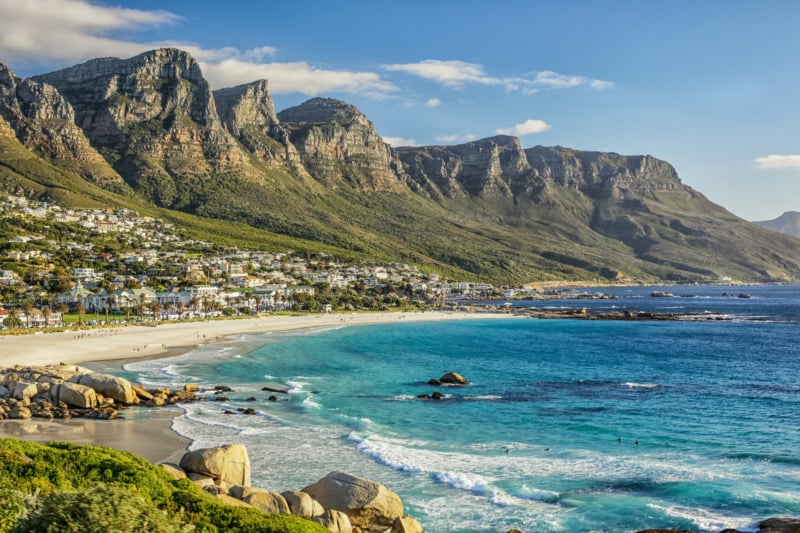

Sabbaticals are much the same as pilgrimages but often incorporate an educational or community service angle. Your employer can fully or partially compensate for some sabbaticals, although some negotiation may be necessary.
See Related: Best Ancient Ruins & Archeological Sites in the World
11. Medical Tourism


Medical tourism assists those seeking medical procedures abroad, blending health benefits with the opportunity for recovery in a restorative destination, often at a more affordable cost than at home. Common reasons people opt for medical tourism outside the U.S. include:
- Cheaper general healthcare costs
- Cheaper medication
- More accessible female healthcare
- Cheaper and more accessible gender reassignment healthcare
- Cheaper plastic surgery
- No religious discrimination
Bear in mind that medical tourism can put unnecessary pressure on another country’s healthcare systems. Medical tourism should only be considered a last resort.
12. Space Tourism


Space tourism is a testament to human innovation and the enduring spirit of adventure. Those seeking a truly unique journey are looking towards the stars.
Historically, space exploration was exclusive to professional astronauts, but today, commercial endeavors are turning space travel into a reality for non-astronauts. Well, non-astronauts with a boatload of cash.
Although the number of actual space tourist flights is about the same length as most flights in minutes (around 20), the frequency of space tourist flights is increasing. While most flights are suborbital and last a few minutes, some private ventures have spent days in space, either in low Earth orbit or aboard the International Space Station.
This is a once-in-a-lifetime trip, incredibly difficult to access, and insanely expensive. But with the increase in flights, prices are anticipated to decrease over time. Plus, space tourism is probably going to pave the way for off-Earth colonies such as the Moon or maybe even Mars.
Related Resources



